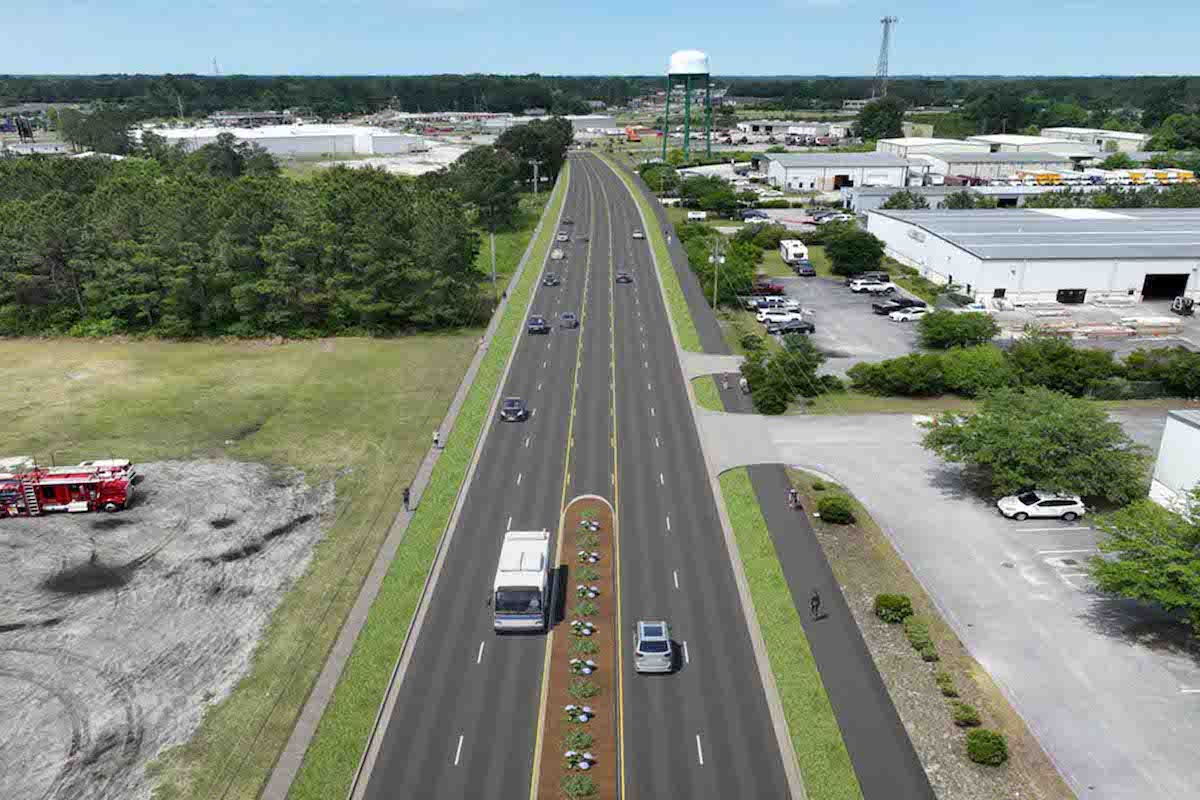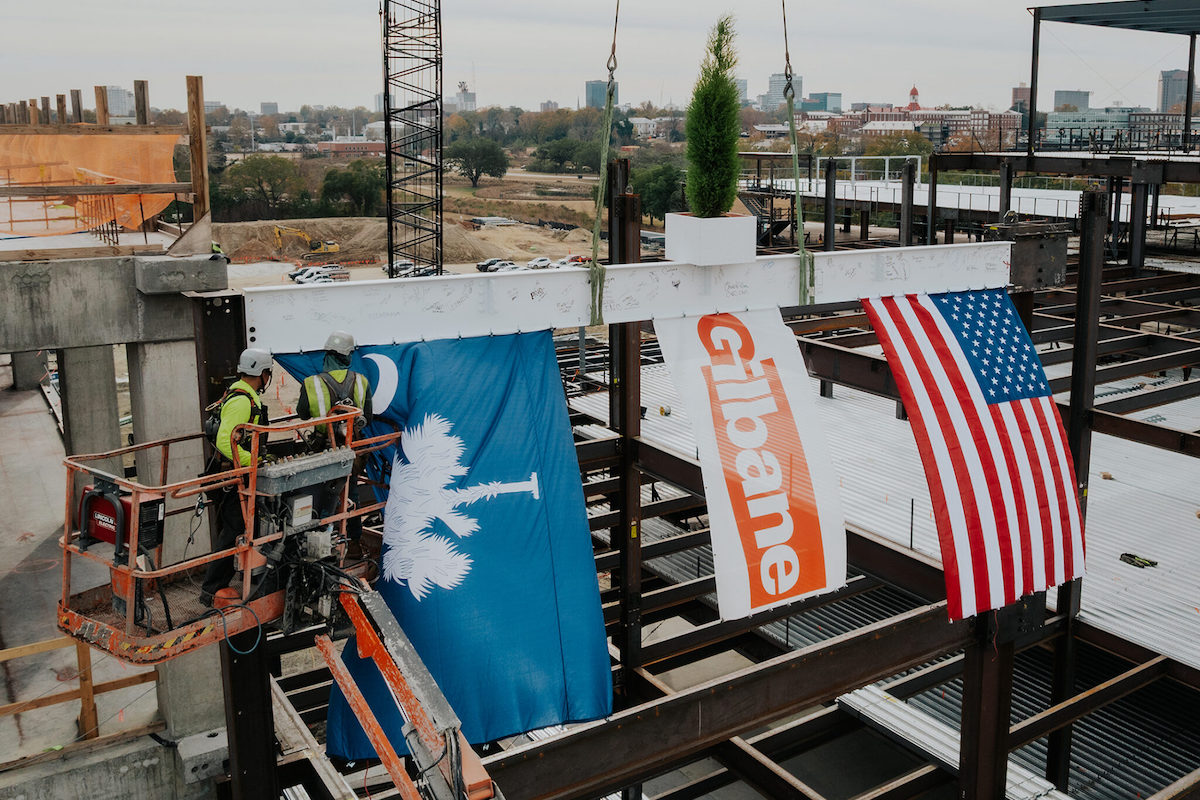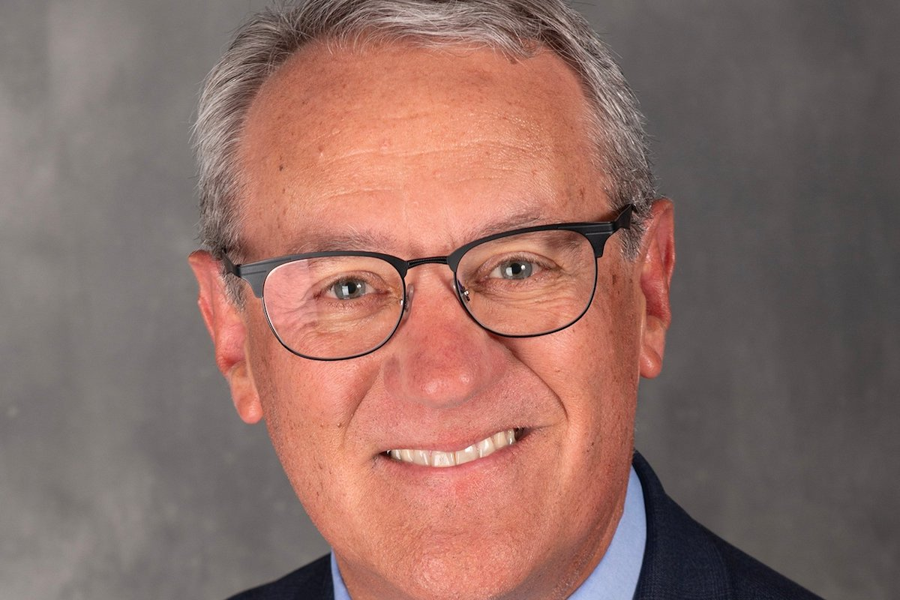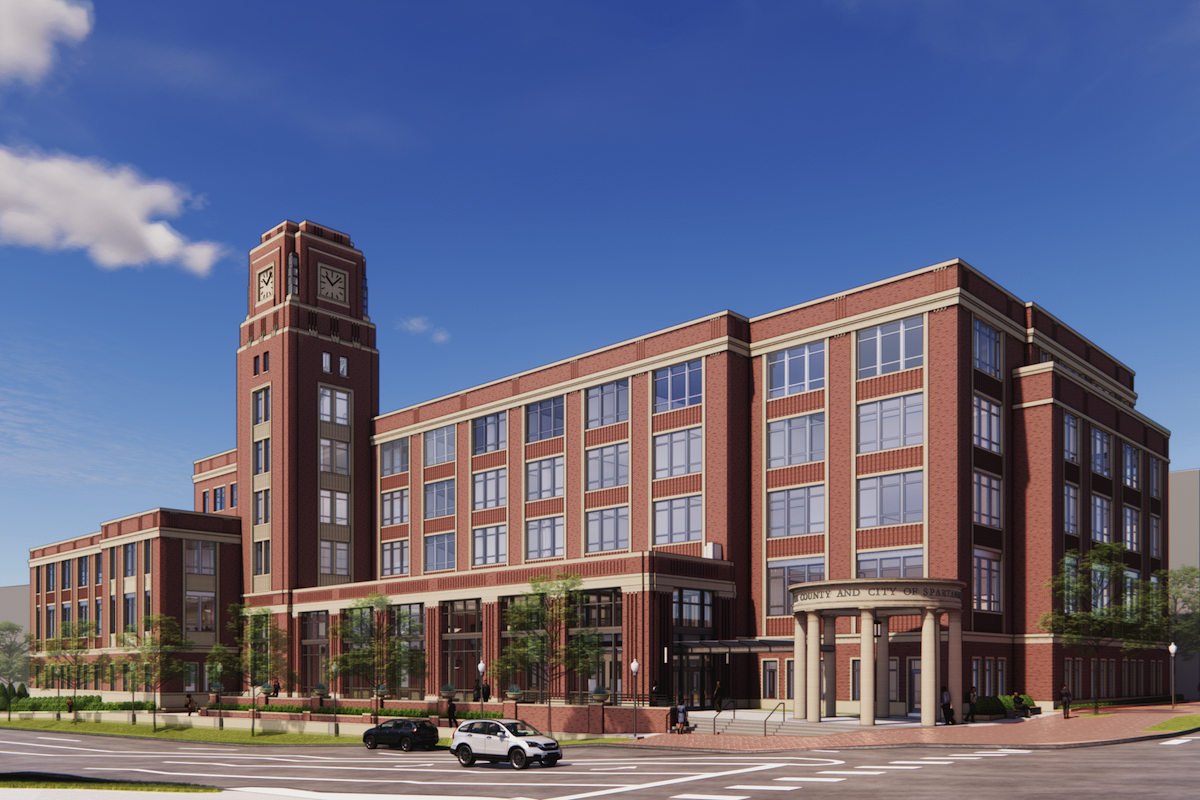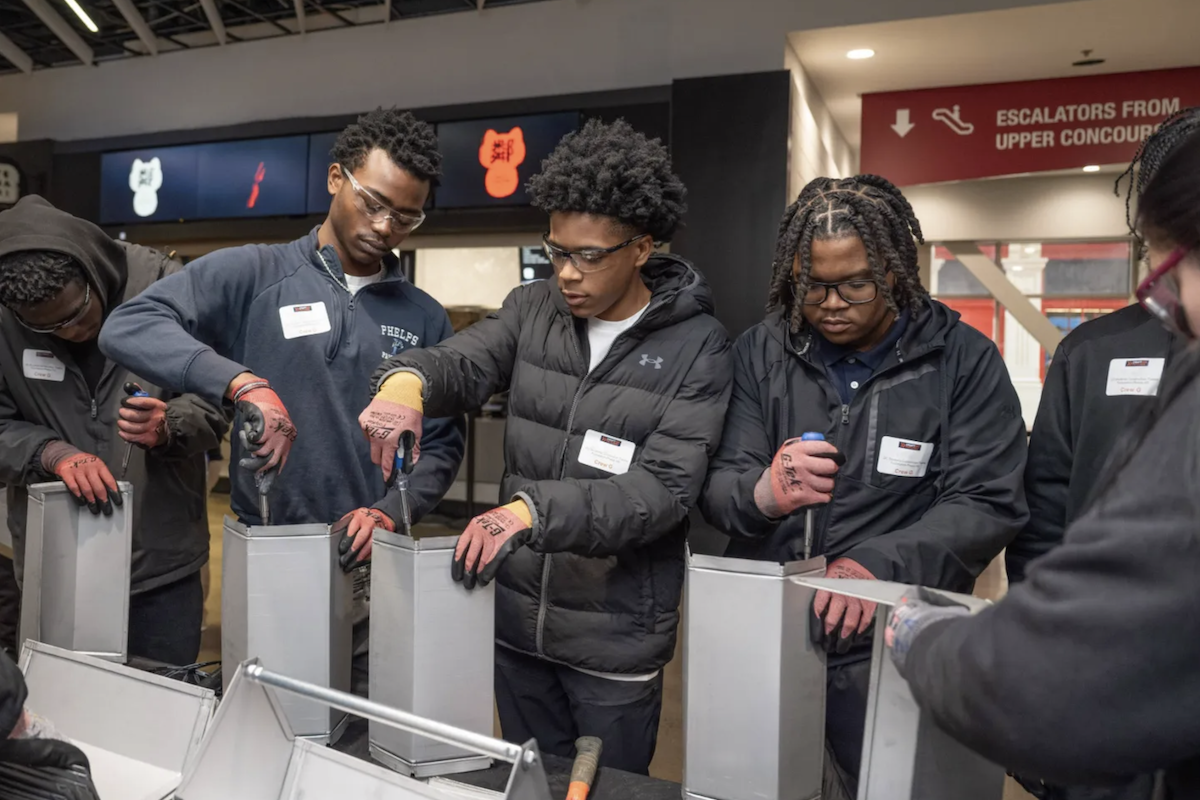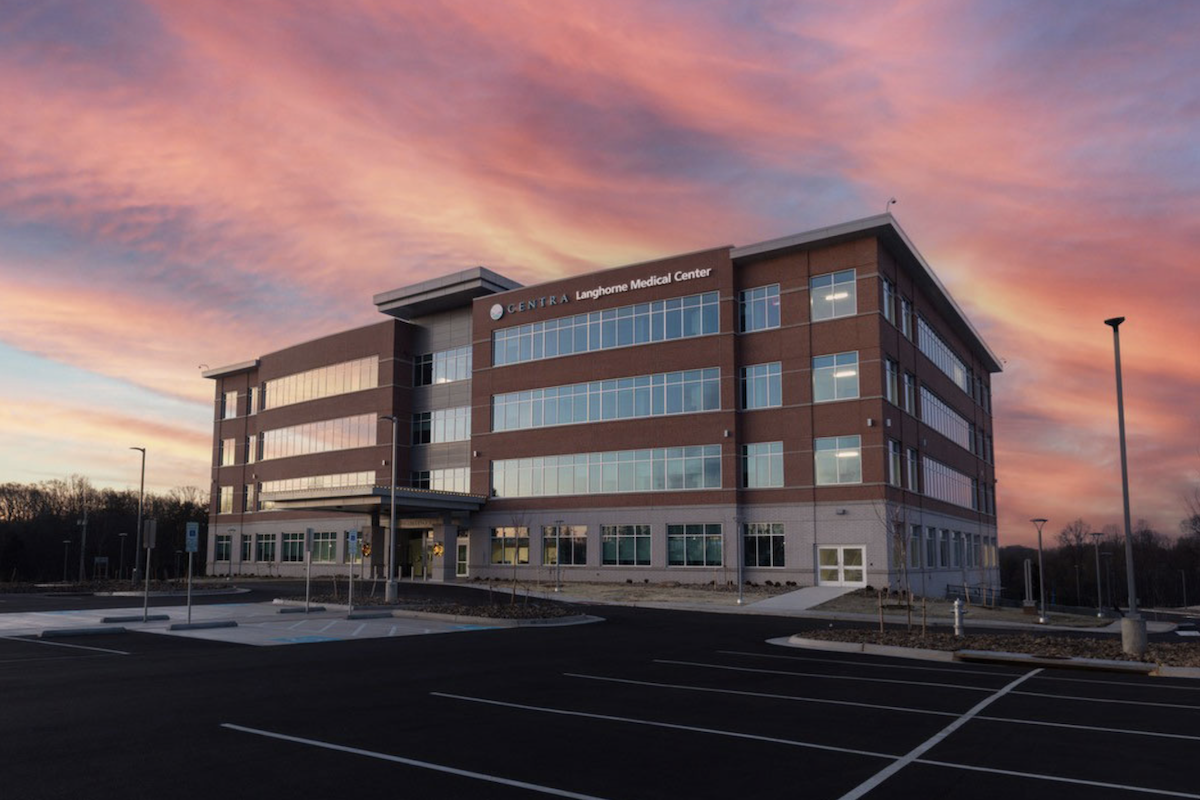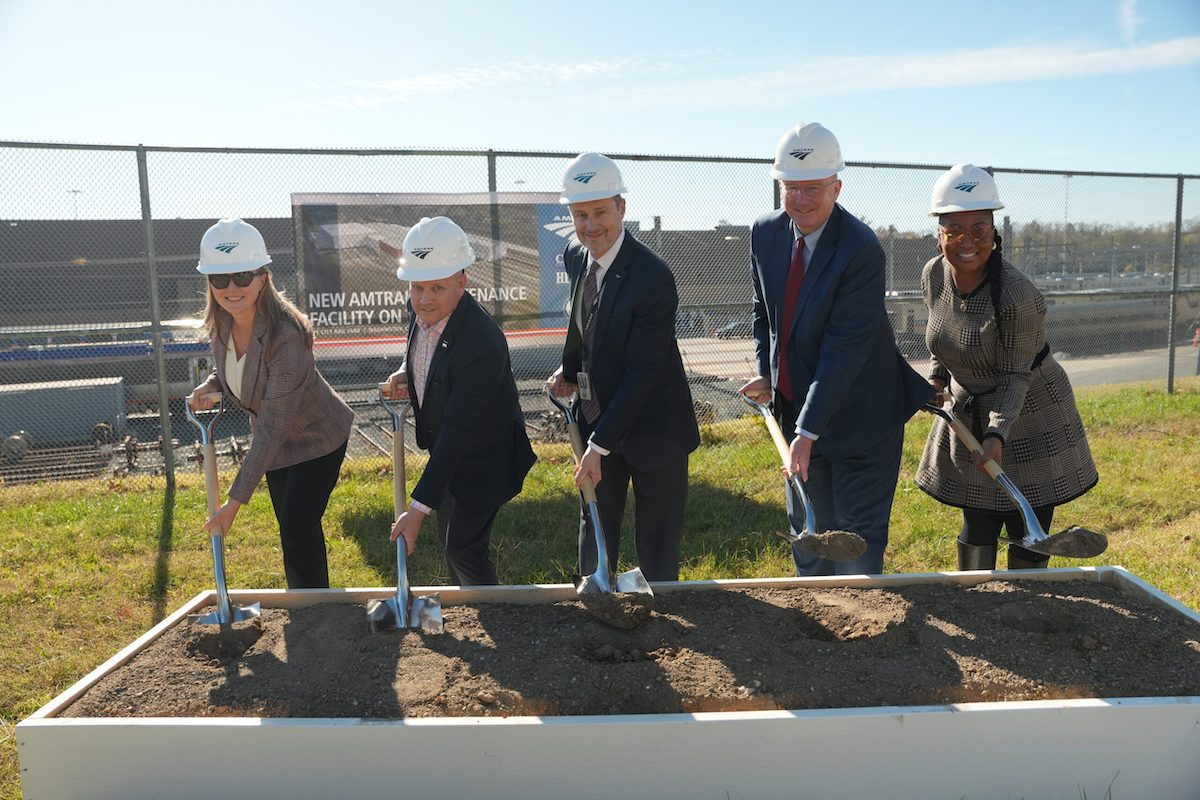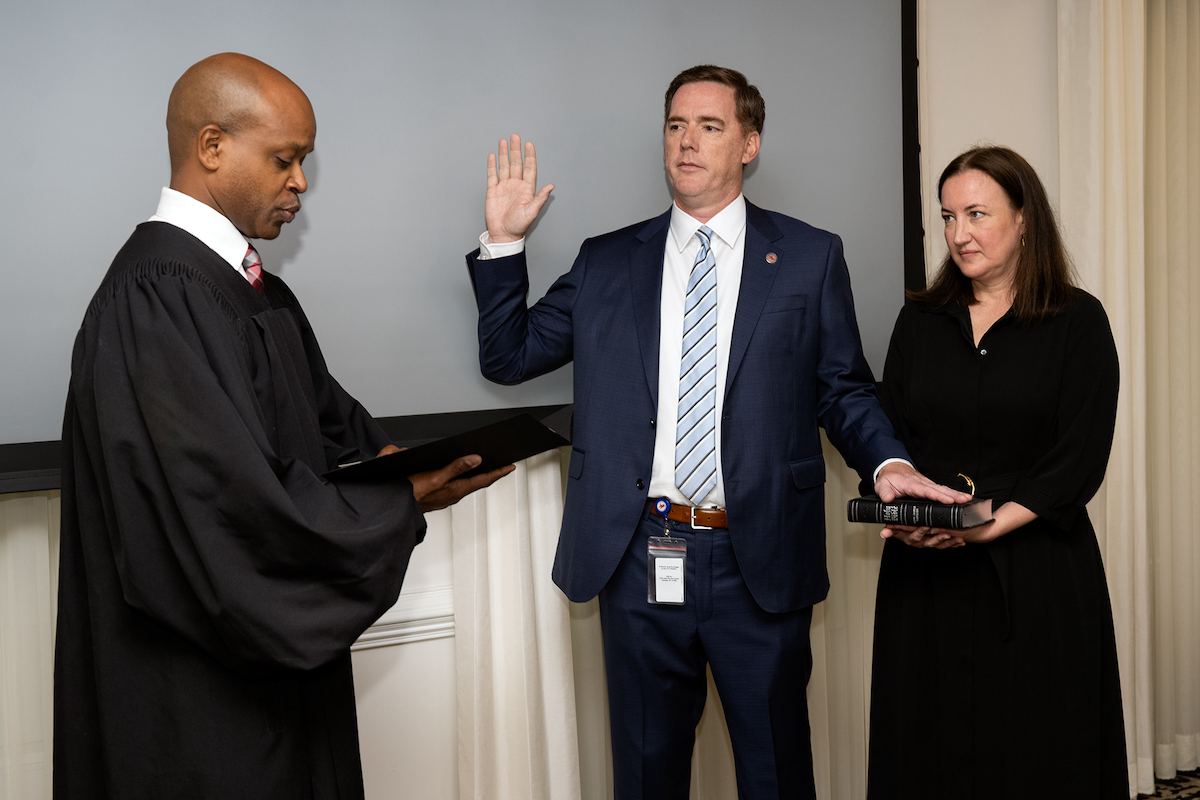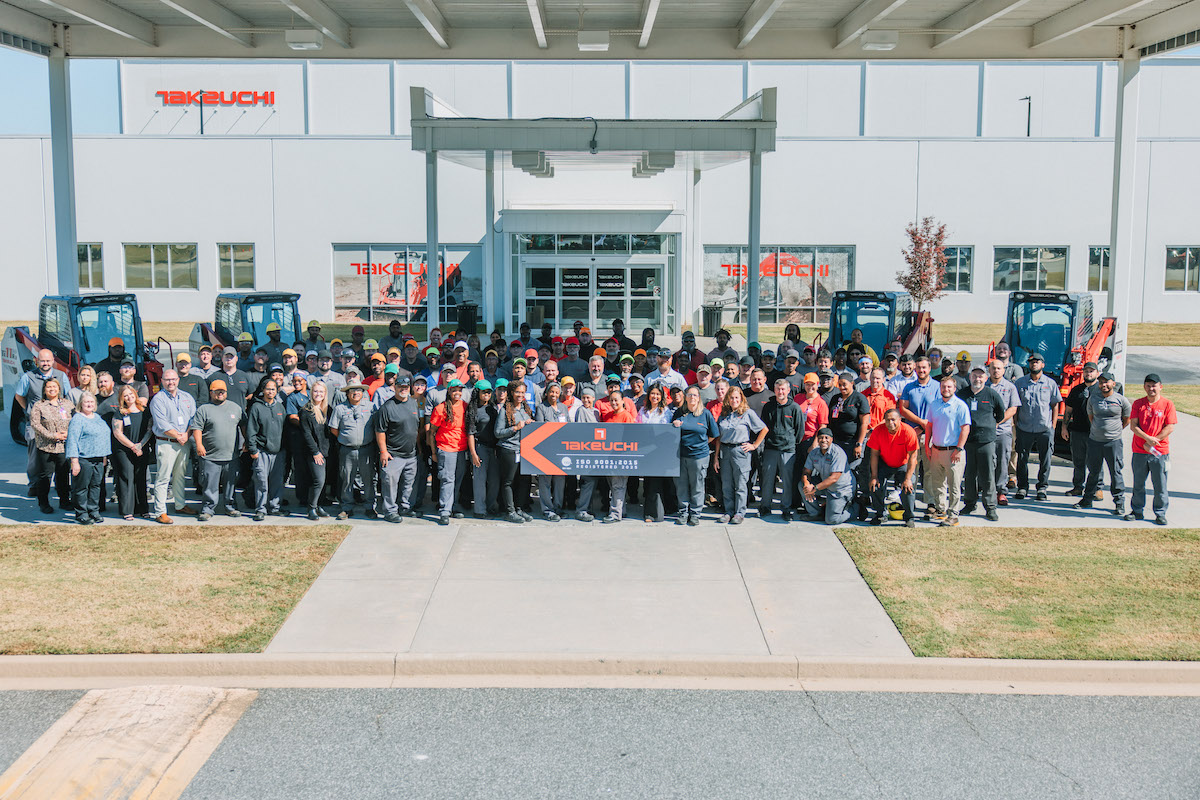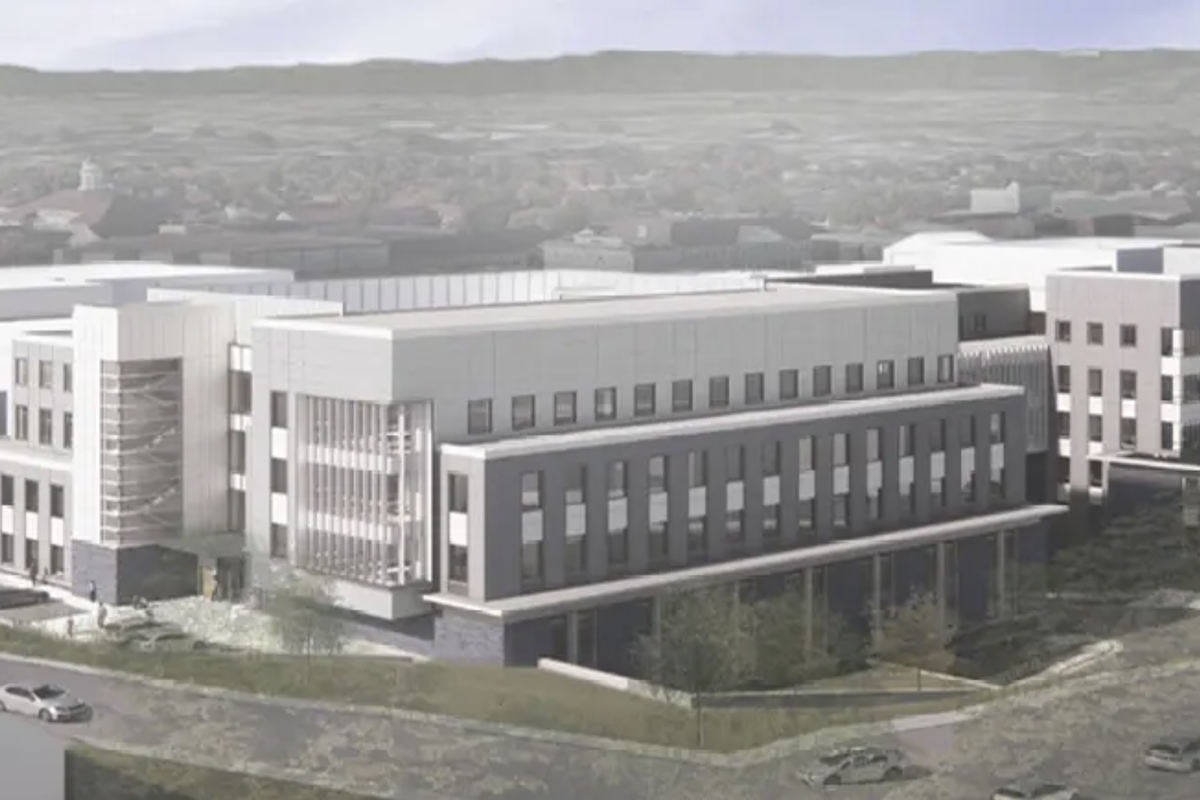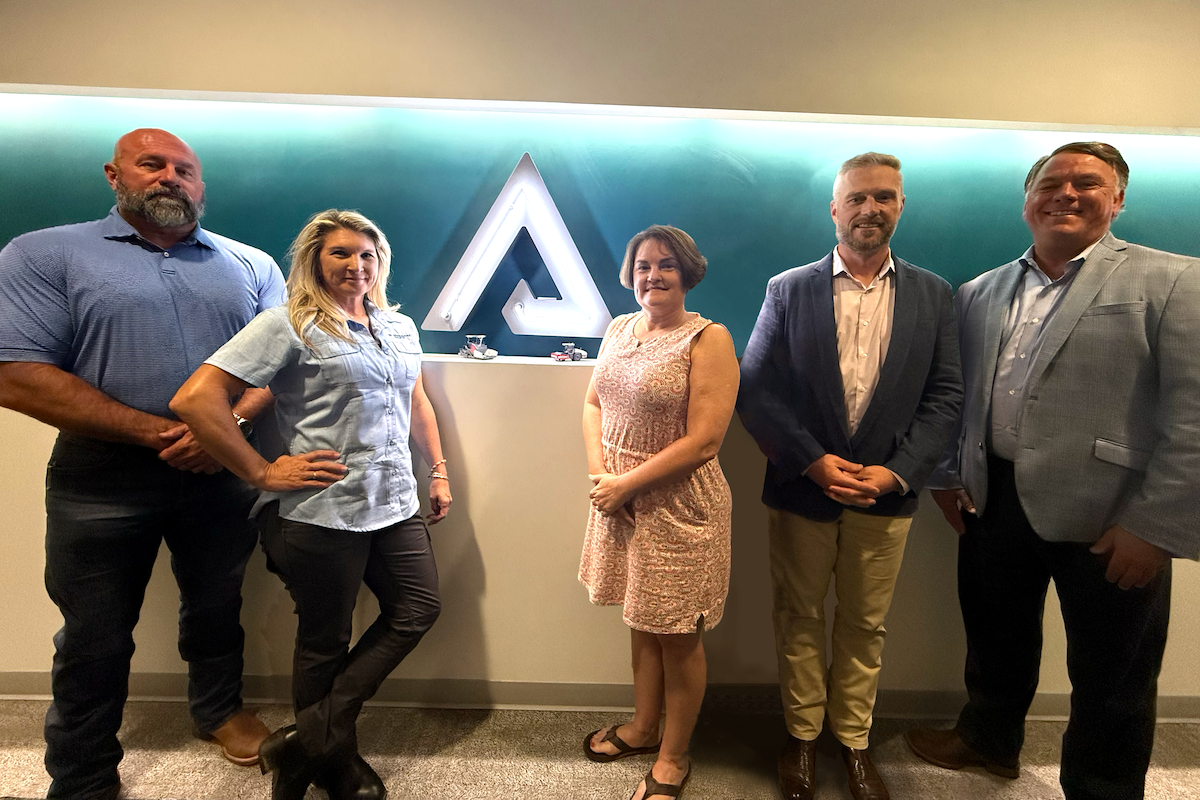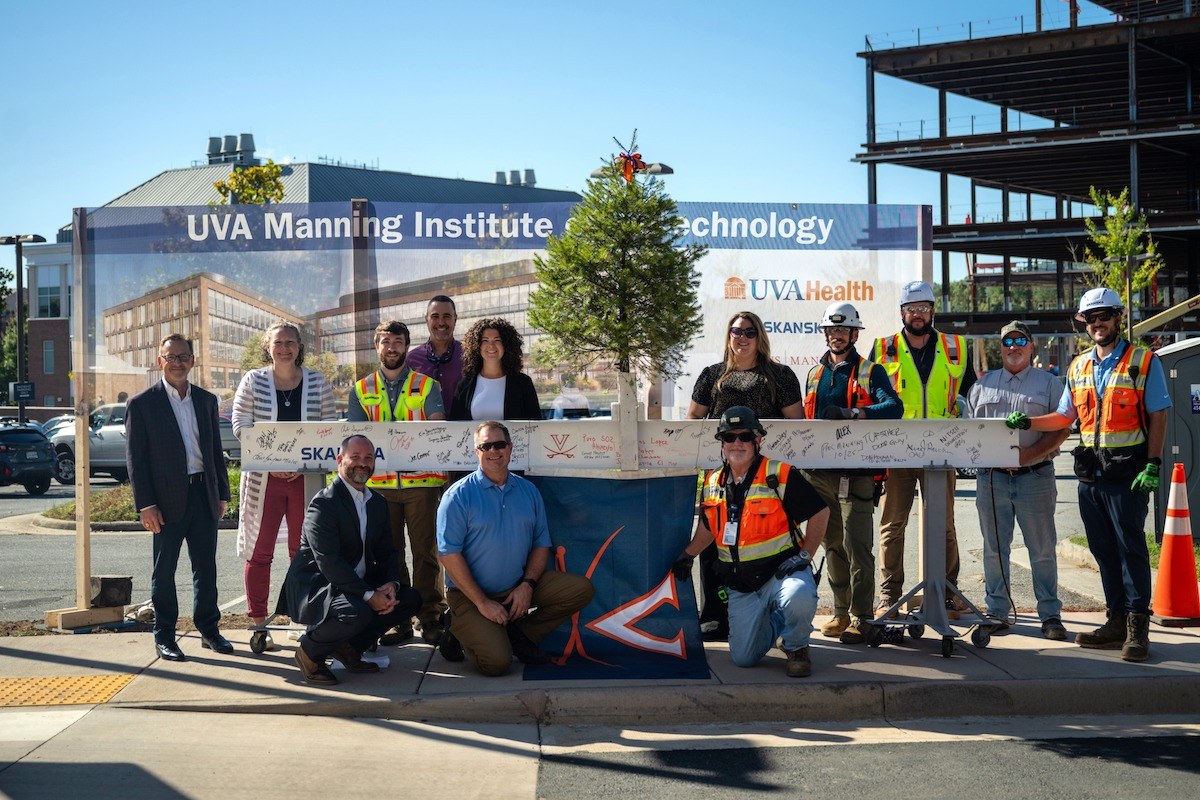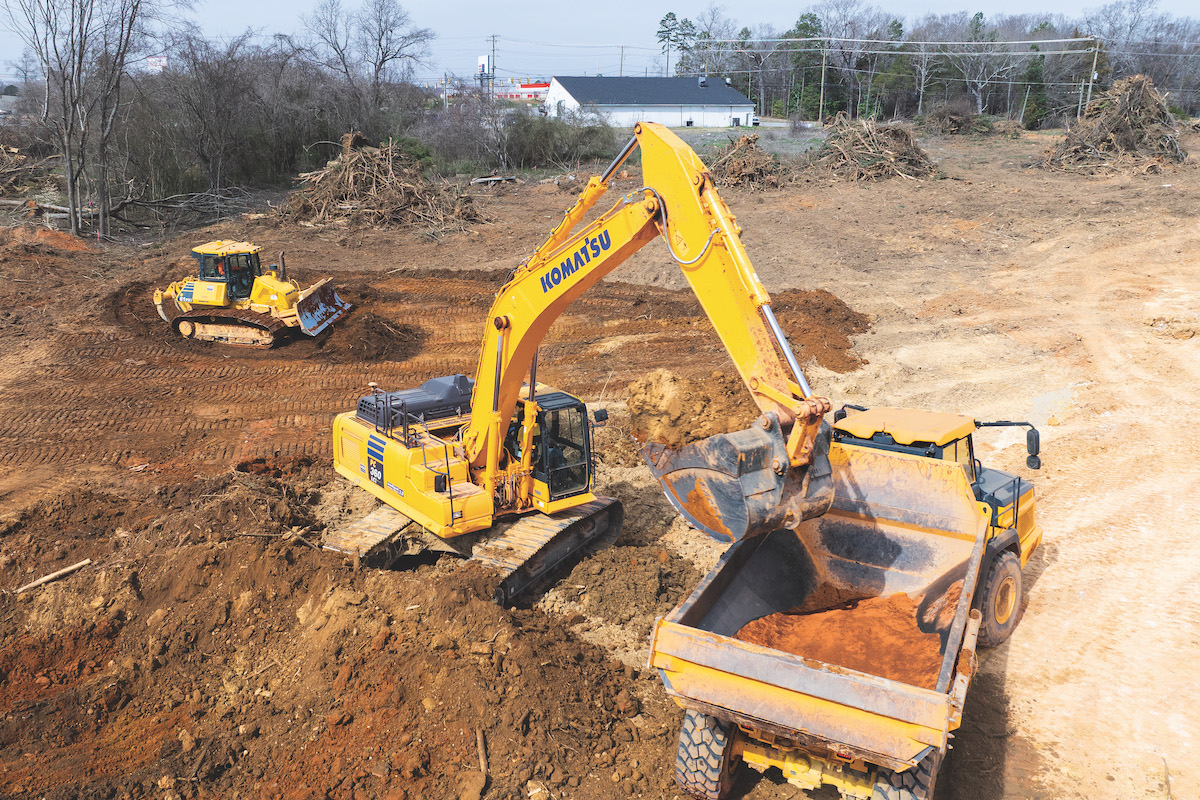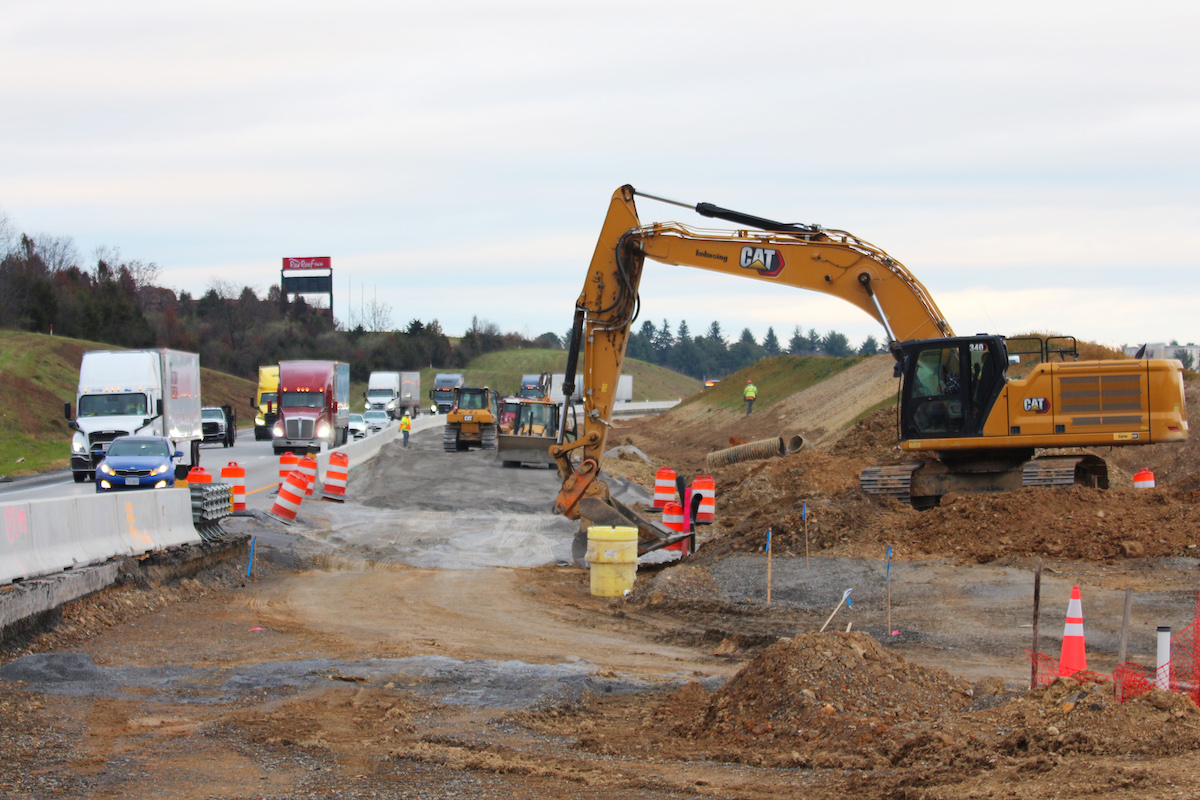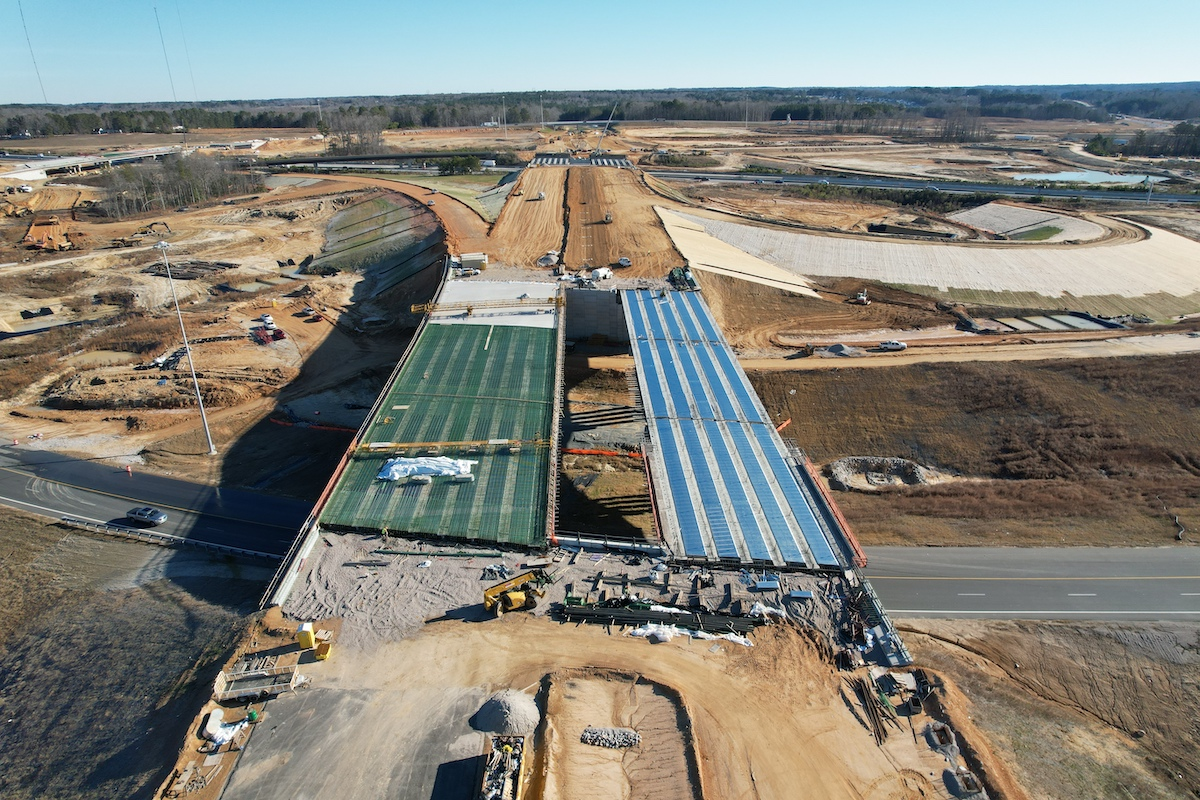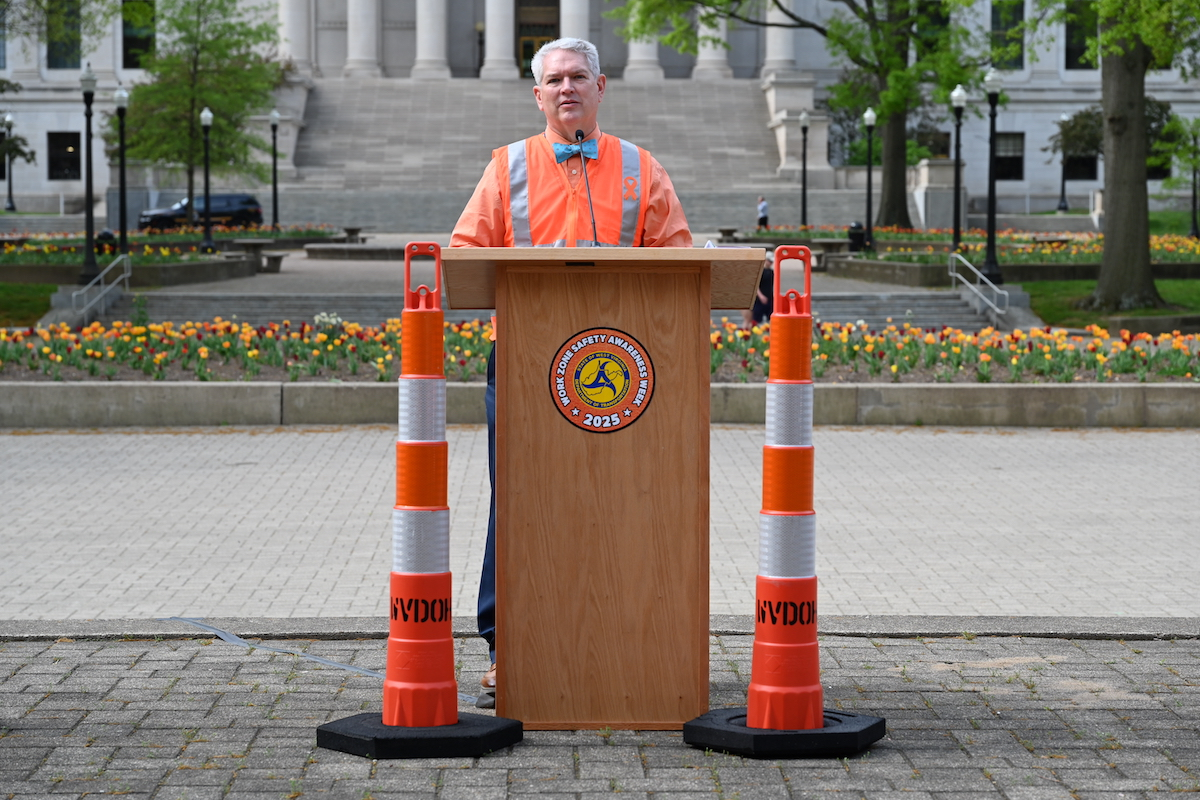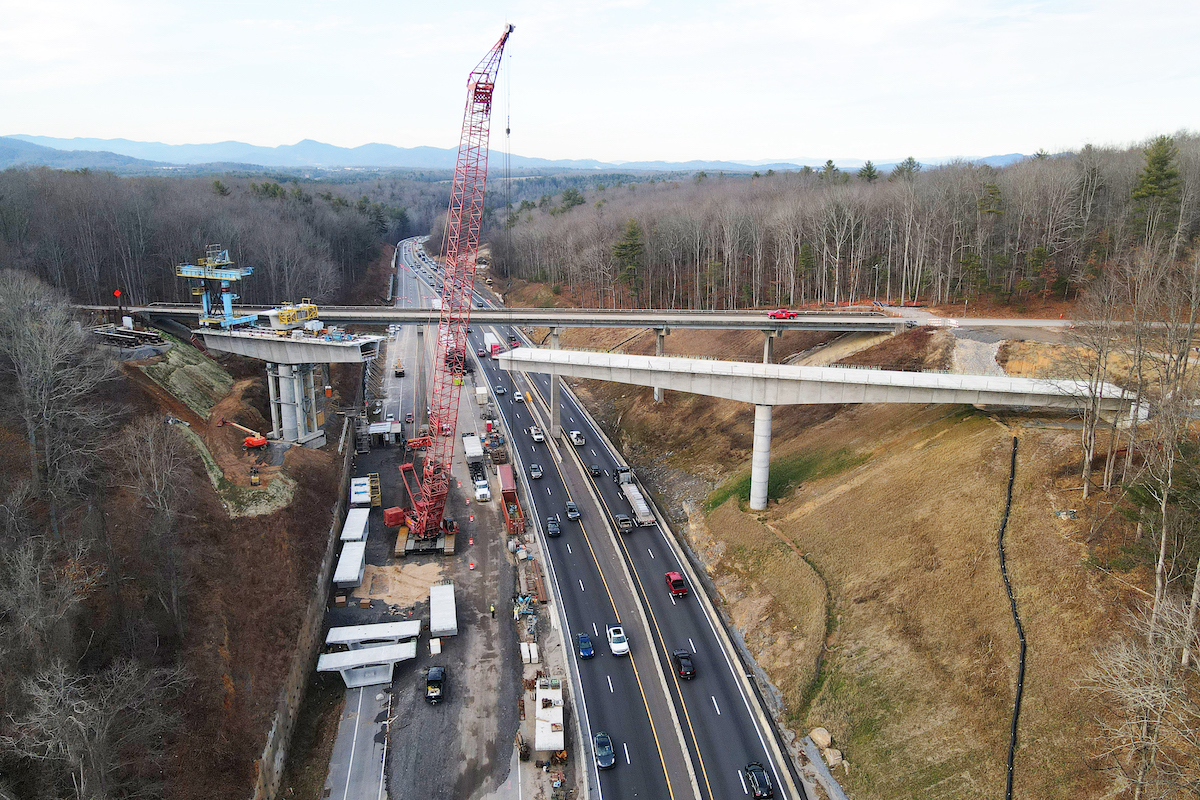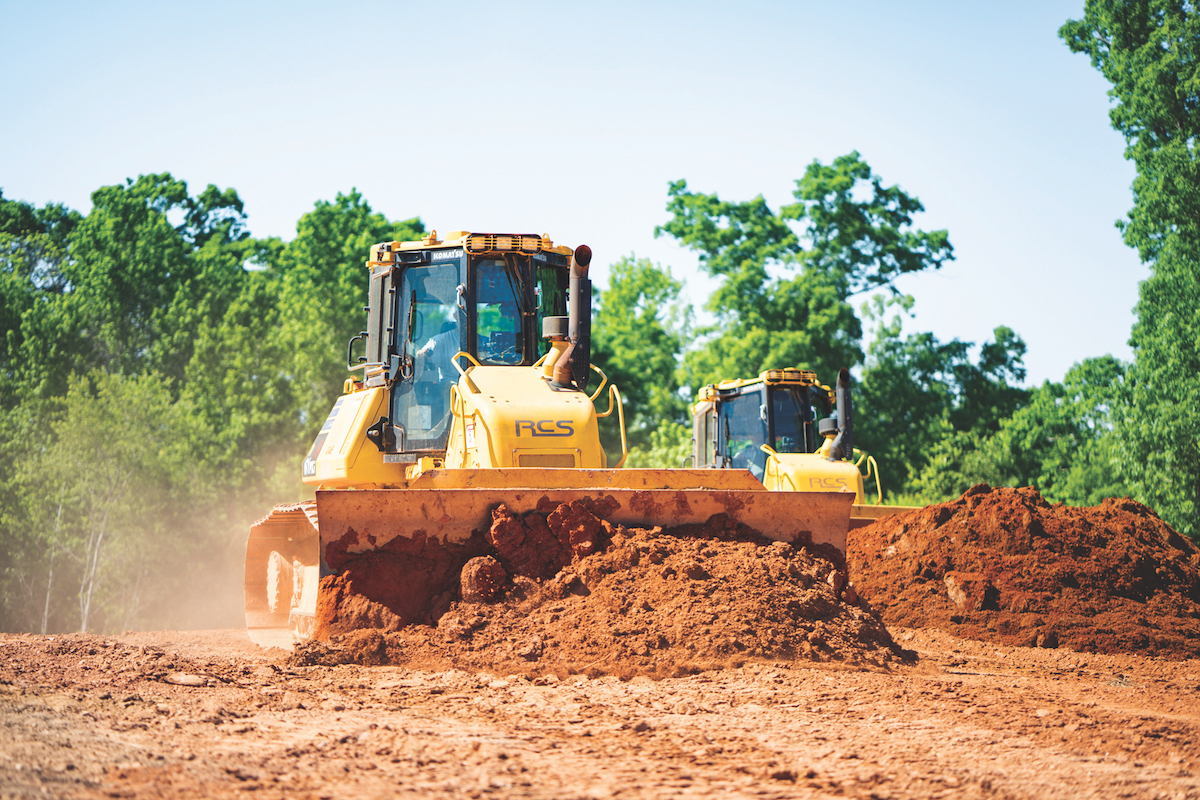“The New T1 project is being designed to create a better airport experience for everyone,” said Angela Shafer-Payne, Chief Development Officer for the San Diego County Regional Airport Authority. “The New T1 also aligns with the plans of our partner agencies to help create a seamless transportation experience for the region.”
“The building has clearly outlived its useful lifespan and no longer provides the kind of customer experience our passengers deserve,” Shafer-Payne said.
The project will improve transportation and mobility with a new on-airport access road and space for a direct connection to the region’s public transit network. The team is also building a 5,200-vehicle parking plaza for the airport, which sits on 661 acres.
“San Diego International Airport is an economic driver for our community, and this project further strengthens that relationship,” Shafer-Payne said. “The project is providing 15,000 to 20,000 jobs to San Diego during construction and providing additional opportunities both inside the terminals and airside once it is completed.”

| Your local Komatsu America Corp dealer |
|---|
| Linder Industrial Machinery |
The San Diego County Regional Airport Authority divided the construction project into two phases to ensure enough gates remain available for passengers during construction. The first phase, currently being built, will add 19 gates and open in late September 2025. Six months from then, three more gates will open. The second phase will deliver an additional eight gates and is scheduled to open in 2028. The first phase encompasses 800,000 square feet and the second 230,000 square feet.
In 2020, the airport authority selected the design-build team of Turner-Flatiron, a joint venture (JV) between Turner Construction of New York and Flatiron of Broomfield, Colorado, to construct the New T1. The airport authority has used the design-build delivery method for more than 15 years.
“This delivery method creates a single point of accountability for project delivery and is the only project delivery method that successfully encourages the alignment of the interests of the contractor and the owner and focuses all participants on achieving a successful project,” Shafer-Payne said. “Design-build allows the owner to gain the expertise of the contractor, designers, and subcontractors early in the project in order to make cost-effective decisions. It has helped the authority and the JV create a partnership that has navigated the turbulence of the past few years successfully.”
In addition to leading the project, the Turner-Flatiron JV self-performed general requirements, utilities, roadways, and other civil work.
“It’s not every day that people are part of a nearly $3 billion effort,” said Steve Rule, Turner Vice President and Project Director. “This is a mega project, so everything is magnified. The size and energy that goes into the project is significant.”
The Turner-Flatiron JV places about $60 million of work per month on this project. Upwards of 1,200 workers are on site daily.
“We are proud of the tremendous collaboration [between] the airport authority and the Turner-Flatiron joint venture on the New T1 project,” Shafer-Payne said.
The New T1 project is Flatiron’s fourth project at the San Diego International Airport. Turner-Flatiron had previously worked with PCL Construction of Denver, Colorado, on the San Diego airport’s Terminal 2 Expansion, completed in 2013.
Gensler of San Francisco, California, serves as the lead architect on the current project. MKA of Seattle, Washington, provides structural engineering services.
The airport received $20 million in discretionary grant funds as part of the Bipartisan Infrastructure Law’s Airport Terminal Program. The airport sold bonds in 2021 and 2023 to fund the Terminal 1 project.
“Repayment of the debt over the 35-year term will be made from airport revenue, a significant portion of which comes from airline partners,” said Scott Brickner, Chief Financial Officer at the San Diego County Regional Airport Authority. “In addition to debt funding, the program includes approximately $350 million of airport cash and approximately $300 million of federal grant funding.”
San Diego International Airport also has some taxiway work and an underground fuel delivery system under way, under different contracts — Griffith of Brea, California, for the airfield and Burns & McDonnell, with offices in San Diego, for the fuel delivery system. Turner-Flatiron will pave the first 20 feet from the terminal.
The project’s goals maximize opportunities for small, local, and veteran-owned businesses to “further our commitment to being environmentally, socially, and economically sustainable through our ongoing efforts,” Shafer-Payne said.
The Turner-Flatiron JV remains on track to meet or exceed those goals.
“In the fiscal year 2023, the Procurement Department awarded more than $29 million to certified local businesses and an additional $7 million to businesses located within San Diego County; more than $15 million to certified small businesses; more than $5 million to women-owned businesses; and more than $15 million to minority-owned businesses,” said Craig Ruiz, Manager, Small Business Development for the San Diego County Regional Airport Authority.
“The New Terminal 1 is much more spacious and has many more amenities people will enjoy,” Rule said.
The first phase of the new steel-frame terminal topped out in October 2023.
The floors are polished terrazzo, durable and easy to clean. That required extra power to install the flooring, supplementing with large battery units to decrease the release of particulate matter.
A portion of the exterior features a prefabricated, curved glass curtain wall comprised of 689 pieces, which will stand 48 feet tall and 900 feet long. A modularized metal panel system clads the rest of the exterior.
“The panels bring a feeling of depth to the façade, and the repetition of the curved glass interacts with the sun’s movement overhead to present an ever-changing play of light and shadow on the façade,” Shafer-Payne said.
The insulated glass limits glare and heat gain by the sun on the building’s southern exposure. Artist James Carpenter designed the “Luminous Wave” curtain wall on the front of the building, as part of the public art commissioned for this project. It was no more difficult to install than any complex curtain wall, Rule said.
“The design took inspiration from how the light and water ripples on the surface of the ocean,” Shafer-Payne said. “The design allows those in the terminal to have unobstructed outside views since there is no need for shades or blinds for the windows.”
The team is aiming for LEED Silver certification, Envision for infrastructure, and Parksmart for parking facilities. According to Gensler, sustainable features include bicycle lanes and parking; energy and water conservation initiatives, such as low flow fixtures; reuse of rainwater; daylight harvesting; use of low volatile organic chemical emissions; high-performance glazing; and power supplied by a renewable, carbon-free electricity solar array, delivered under a different party. Ten percent of the parking spaces will be equipped with electric vehicle charging stations.
“San Diego International is the busiest single-runway airport in the nation,” said Paul Mignone, Civil and Terminal Manager with Flatiron, responsible for the roads and bridges. “That brings a lot of vehicular traffic to this part of the city.”
Harbor Drive, the road in front of the airport has about 50,000 vehicle trips per day, which can create a lot of congestion. This project will build a 1.2-mile-long roadway on the airport campus, removing vehicles from Harbor Drive. The team divided the work into 13 phases.
The Turner-Flatiron JV began by researching existing utilities to ensure the underground infrastructure currently being used by the airport was not damaged.
“There was a lot of subsurface investigation, involving sonar to understand what was down there, but predominantly [the locating] was done by researching the as-built drawings,” Mignone said. “The only safe way to go about doing this was to use a hydrovac truck to excavate down and physically identify the utility. Anything else was just not reliable.”
The team demolished a former rental car building, a taxi holding area, cellphone lots, and an early terminal structure that became an administration building to make way for the new road system. The team disassembled the historic, steel and glass United Airlines Hangar Terminal, stored it in boxes, and will reassemble it on the other side of the airport.
The work includes building underground stormwater management storage with biofiltration basins and cisterns, expanding the central utility plant, an apron, constructing a temporary road and airport entrance, closing the prior entrance, and constructing nine bridges, most with cast-in-place concrete girders and two with precast girder bridges. The road will be paved with asphalt. Still ahead, the team will remove the existing entrance to make way for the second part of the parking plaza.
The roadway work was about 65 percent complete at the time of writing this article, when the team was building retaining walls and bridges. The parking plaza is expected to open in August 2024. Swinerton of San Francisco, California, is the subcontractor.
Turner-Flatiron has utilized various technologies such as total stations; laser scans; iPads for superintendents; QR codes in different spaces that will take the person to that location in the model; and building information modeling, which assists with clash detection and tracks progress. The team is also using an electronic excavator on this job.
The team completed all of the construction work without disrupting airport operations and eliminating as many inconveniences as possible, Mignone said.
“The New Terminal 1 will be a huge improvement for passengers, visitors, and San Diego residents for many years to come,” Rule said. “The project should ease congestion in the area and be good for the community. We are excited to be part of this incredible project.”
Photos courtesy of the San Diego County Regional Airport Authority





















